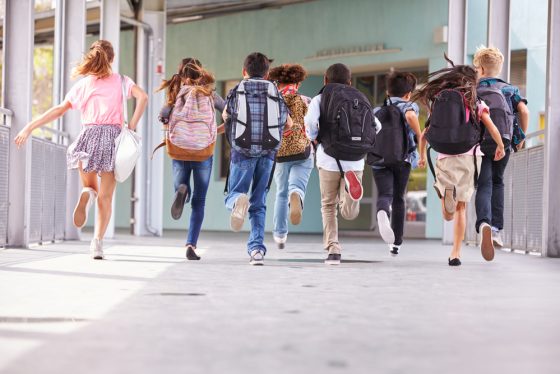Dutch education system is increasing inequality, SER says


The Dutch educational system is increasing inequality of opportunity between children and coronavirus has only made the situation worse, the government’s most senior advisory body said on Friday.
SER, which is made up of union, employer and lay members, said that children from more disadvantaged backgrounds are less likely to have a ‘stimulating and facilitating home environment’ and that they have been harder hit by school closures during the pandemic.
The report calls on the government to do more to improve the quality of education by tackling the shortage of teachers, big class sizes and the downturn in language and arithmetic skills.
Equality of opportunity in education is in everyone’s interest, lay member Steven van Eijck said. ‘It is a good thing to make the most of your talents, do what you are good at and to develop. And that is also good for our society.’
Earlier this year the education council Onderwijsraad made similar recommendations. It too said coronavirus had exacerbated the differences between population groups.
Like the education council, SER also called for the establishment of mixed ability classes in the first years of secondary school, so that children are not streamed at the age of 12, as they are at present.
Education, SER said, has a major role to play in reducing the disadvantages which some children face as they grow up. ‘But education does not play the role of a ‘great equalizer’,’ SER said. ‘On the contrary, the way our education system is organised can increase inequality of opportunity rather than decrease it.’
Mixed ability classes
The proportion of mixed ability first year classes, known as brugklassen in Dutch, or bridge classes, has gone down from 70% to 55% over the past 10 years. Some 54% of 12-year-olds currently go to vmbo or trade schools, while 22% are in pre-university (vwo) streams and 24% in pre-college (havo) streams.
School inspectors have also warned of the ‘unacceptable’ inequality in Dutch education because children of well-educated parents are scoring better in final primary school exams than children of equal intelligence from more disadvantaged backgrounds.
For example, well-educated parents are more involved in the choice of school and invest money in tutors, homework classes and training in exam techniques. Their children are also more likely to be labelled dyslexic or as having adhd, which also entitles them to extra teaching time.
Segregation
The government’s socio-cultural advice group SCP said earlier this year that the lack of contact between different social groups at school level can lead to increased segregation in society as a whole.
The problem is particularly acute in cities, where most schools are segregated and children rarely meet those from other streams, the researchers say. ‘ In this way, secondary education is far removed from its goal of teaching pupils to live together as citizens in a complex and diverse society.’
The International Community Advisory Platform is currently carrying out research into expats’ experiences of schools in the Netherlands. Take part here
Thank you for donating to DutchNews.nl.
We could not provide the Dutch News service, and keep it free of charge, without the generous support of our readers. Your donations allow us to report on issues you tell us matter, and provide you with a summary of the most important Dutch news each day.
Make a donation